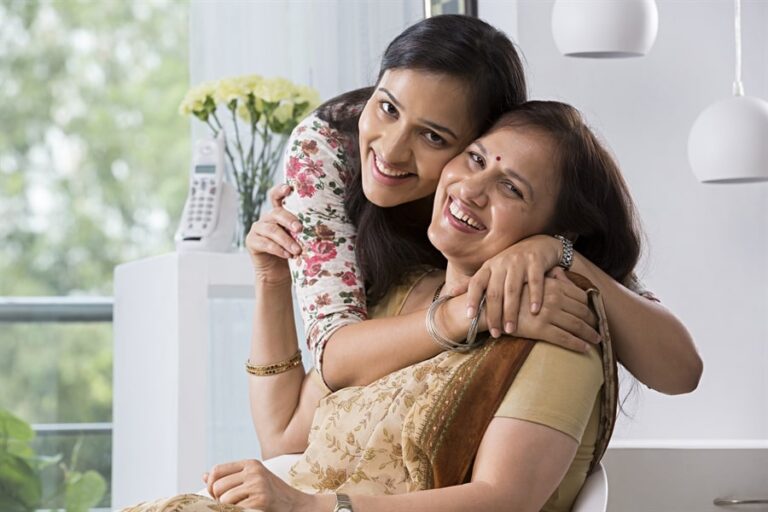Discover why most Indian wives prefer not to live with their mother-in-law. Explore the challenges of joint family life, reasons for choosing nuclear families, and practical solutions for better family harmony in modern Indian households. Learn about the impact on mental health, family conflict, and Indian family dynamics. Why Most Indian Wives Prefer Not to Live With Their Mother-in-Law: Key Reasons, Challenges, and Solutions for Modern Indian Families
The Changing Role of Indian Wives in Modern Families

In recent decades, the role of Indian wives has undergone a significant transformation. Traditionally, Indian women were expected to fulfill domestic duties and prioritize the needs of the joint family. However, with increased education and financial independence, modern Indian wives are redefining their roles within the household.
- Empowerment: More Indian women are pursuing higher education and professional careers, leading to greater financial independence.
- Decision-Making: Modern wives are active participants in family decisions, from finances to child-rearing.
- Personal Aspirations: Today’s Indian wives seek personal growth and fulfillment beyond traditional domestic roles.
- Equality: There is a growing demand for equal partnership in marriage, challenging the old hierarchy of the joint family system.
| Aspect | Traditional Role | Modern Role |
|---|---|---|
| Education | Limited | Higher education, skilled |
| Financial Independence | Dependent on husband/family | Earning, independent |
| Family Structure | Joint family | Nuclear family preference |
| Decision-Making | Limited input | Equal participation |
| Personal Freedom | Restricted | Valued and prioritized |
Why Indian Daughters-in-Law Prefer Nuclear Families Over Joint Families?

The preference for nuclear families among Indian daughters-in-law is a growing trend. While joint families offer support and shared responsibilities, many women find nuclear families more conducive to personal happiness and marital harmony.
- Privacy: Nuclear families provide greater privacy for couples, fostering a stronger marital bond.
- Autonomy: Daughters-in-law have more freedom to make household decisions without interference.
- Reduced Conflict: Fewer family members mean fewer chances for misunderstandings and disputes.
- Work-Life Balance: Managing a smaller household is easier for working women.
| Feature | Joint Family | Nuclear Family |
|---|---|---|
| Privacy | Limited | High |
| Autonomy | Restricted | Full |
| Conflict | Frequent | Minimal |
| Household Size | Large | Small |
| Stress Levels | Higher | Lower |
Common Challenges Faced by Indian Wives Living With Their Mother-in-Law

Living with a mother-in-law can present numerous challenges for Indian wives, often leading to stress and dissatisfaction. These challenges stem from generational gaps, differing expectations, and traditional family hierarchies.
- Generational Differences: Conflicting values and lifestyles between generations can cause friction.
- Household Authority: Power struggles over household management are common.
- Unrealistic Expectations: Wives may be expected to adhere to outdated customs and routines.
- Lack of Privacy: Shared living spaces can make it difficult for couples to enjoy intimacy and personal time.
The Impact of Mother-in-Law and Daughter-in-Law Conflicts on Marriage

Conflicts between mother-in-law and daughter-in-law can have a profound impact on a marriage. These tensions often spill over into the husband-wife relationship, affecting emotional well-being and marital stability.
- Divided Loyalties: Husbands may feel torn between their wife and mother, leading to marital discord.
- Emotional Stress: Constant arguments and criticism can cause anxiety and depression.
- Communication Breakdown: Frequent conflicts can erode trust and open communication between spouses.
- Impact on Children: Family tension can negatively affect children’s emotional health.
Mental Health Effects of Living With In-Laws in Indian Households

The mental health of Indian wives can suffer when living with in-laws, especially in a restrictive or unsupportive environment. Recognizing these effects is crucial for building healthier families.
- Chronic Stress: Daily conflicts and lack of autonomy can lead to ongoing stress.
- Depression: Feelings of isolation and helplessness may result in depression.
- Low Self-Esteem: Constant criticism can erode self-confidence.
- Coping Mechanisms: Many women seek therapy or support groups to manage their mental health.
The Influence of Culture and Tradition on Indian Family Dynamics

Indian culture and tradition play a significant role in shaping family dynamics. While these traditions can foster unity, they can also perpetuate outdated roles and expectations.
- Respect for Elders: Deep-rooted cultural norms often prioritize elders’ opinions over younger members.
- Traditional Gender Roles: Wives are expected to manage the household and care for in-laws.
- Resistance to Change: Older generations may resist modern values, causing conflict.
- Cultural Pressure: Society often judges women who choose nuclear families or set boundaries.
How Career-Oriented Indian Women Are Redefining Family Living?

Career-oriented Indian women are challenging traditional norms and redefining what it means to be part of a family. Their priorities and aspirations are reshaping the Indian household.
- Work-Life Balance: Professional women seek a balance between career and family, often preferring nuclear setups.
- Financial Independence: Earning their own income gives women more say in family matters.
- Role Models: Successful women inspire others to pursue their dreams and challenge stereotypes.
- Supportive Partnerships: Modern marriages are increasingly based on mutual support and respect.
Solutions for Building Healthy Relationships With In-Laws

Building a positive relationship with in-laws is possible with the right approach. Open communication, empathy, and mutual respect are key to harmonious family life.
- Set Boundaries: Clearly define roles and responsibilities to avoid misunderstandings.
- Open Communication: Encourage honest conversations about expectations and concerns.
- Empathy: Try to understand each other’s perspectives and backgrounds.
- Quality Time: Spend time together to build trust and strengthen bonds.
The Future of Indian Family Systems: Nuclear vs. Joint Family Debate

The debate between nuclear and joint family systems is central to the future of Indian households. Both have their pros and cons, but the trend is increasingly toward atomic families.
- Nuclear Families: Offer privacy, autonomy, and flexibility, appealing to younger generations.
- Joint Families: Provide support and shared responsibilities but can be restrictive.
- Societal Change: Urbanization and women’s empowerment are driving the shift toward nuclear families.
- Balanced Approach: Some families find success by blending elements of both systems.
Conclusion:
Understanding the reasons why most Indian wives prefer not to live with their mother-in-law is crucial for fostering healthier, happier families. By embracing change, respecting individual choices, and building positive relationships, Indian families can thrive in the modern era.

